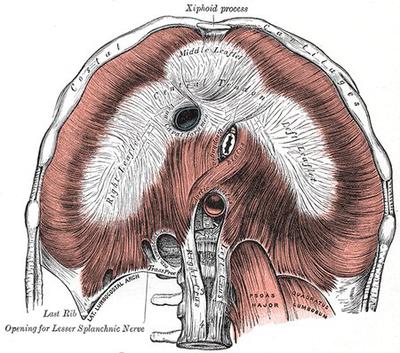Enhance your health with free online physiotherapy exercise lessons and videos about various disease and health condition
paralysed diaphragm physiotherapy
by Prodyut Das
(Greater Noida, India)
Chest Physiotherapy can lead to marked improvement in functional outcome following post cardiac surgery diaphragmatic palsy.
Most patients with unilateral diaphragmatic paralysis are asymptomatic and do not require treatment. If the underlying cause is found, they can be treated. Even when the etiology is not known, many times paralysis resolves on its own, albeit slowly over a period of months to more than a year. In a select group of patients with unilateral diaphragmatic paralysis who have severe dyspnea upon excursion, surgical treatment has been shown to be beneficial.
Bilateral disease carries worse prognosis, either because it is usually an expression of more severe disease and due to the marked impact of bilateral disease on respiratory mechanics. However, even patients with bilateral disease often improve, loss the dependency on ventilatory support, can live reasonable life.
Conventional chest physiotherapy (including coughing, deep breathing exercises and incentive spirometry) may have a beneficial effect in the post operative pulmonary impairment.
(During Intubation): Chest physiotherapy with endotracheal suction every 2 hourly.
(Post extubation): Local expansion exercise (lateral costal and abdominal), three to four consecutive deep breaths with interspersed periods of quiet breathing. Practice glossopharyngeal breathing exercises in sitting or half lying positions. Humidifier, continuous positive airway pressure / Bi-level positive airway pressure can also be used as needed.
(Pre discharge): Physiotherapist should teach Local expansion, diaphragmatic breathing exercises, glossopharyngeal breathing, deep breathing and incentive spirometry to the patients and ask to do the same three to four times a day after discharge, for the next three months.
Return to Physiotherapy Discussion Board.


